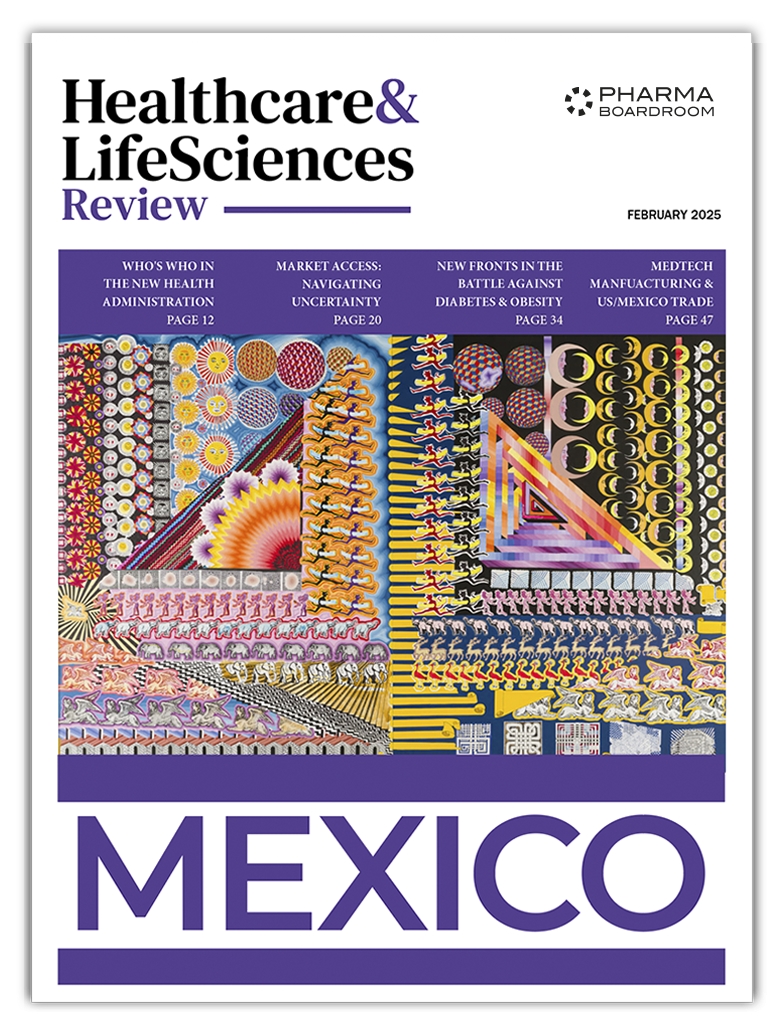Rainer Westermann, chairman of the Life Sciences Acceleration Alliance e.V. looks out over the choppy waters for life sciences venture capitalists in Europe over 2025. Three key initiatives stand to reshape the continent’s investment climate, but broader geopolitical winds – especially those now emanating from the White House – could derail any progress.
Accepted rules and established practices in international trade and geopolitics have been thrown by the wayside. Today, investors face an unprecedented uncertainty on a global scale and find a European Union struggling to keep up and find answers. The two parties in Germany likely to form a government have just agreed in principle on a huge, unheard of investment program for strengthening the military and improving infrastructure.
This is all taking place at a pivotal moment for the EU’s biotech and healthcare sectors, reshaped by evolving regulatory frameworks and investment landscapes. For venture capital investors, for whom the Life Sciences Acceleration Alliance e.V. monitors developments, it is crucial to understand the regulatory shifts to help navigate opportunities and risks. Three key initiatives—the Capital Market Union (CMU), which is now called the Savings and Investment Union, the Biotech Act, and the Draghi Report on EU Competitiveness—are meant to be defining forces on the region’s investment climate. Let us look at these initiatives, their implications, and potential impact.
Savings and Investment Union: Strengthening Access to Investment
The Savings and Investment Union (SIU) is a strategic initiative aimed at deepening and integrating Europe’s capital markets. Launched by the European Commission, it seeks to reduce reliance on bank financing and enhance cross-border investments within the EU.
Key Objectives of the SIU:
- Increasing liquidity and improving access to capital for innovative businesses, including biotech startups.
- Reducing regulatory fragmentation between member states, fostering a more unified financial ecosystem.
- Strengthening market infrastructure to facilitate equity and debt financing.
For biotech and healthcare startups—sectors that require significant long-term investments—the SIU’s potential to streamline fundraising efforts could be transformative. Venture capital investors should find increased access to diversified investment instruments and a more predictable regulatory framework under this initiative.
The Biotech Act: Enhancing Support for Life Sciences Innovation
Although still under development, the Biotech Act is expected to play a critical role in shaping EU policy for the biotech sector. This legislation aims to:
- Improve funding mechanisms for biotech research and development.
- Address regulatory hurdles that currently slow down drug development and market entry.
- Encourage public-private partnerships to boost innovation in pharmaceuticals and healthcare technologies.
If properly worded and successfully implemented, the Biotech Act could de-risk investments by providing clearer guidelines and incentives for venture capitalists. Additionally, it is meant to facilitate accelerated approval processes, reducing time-to-market for biotech innovations. Moreover, a broader Life Sciences Strategy is expected to add momentum.
Draghi Report on EU Competitiveness
The Draghi Report on EU Competitiveness, commissioned by the European Commission, and at the root of the above, highlights Europe’s lagging competitiveness in comparison to global counterparts like the US and China. The report underscores several structural weaknesses in the EU’s economic landscape, including:
- Insufficient risk capital available for high-growth sectors.
- Regulatory complexities that hinder cross-border investments.
- Slow adoption of innovation-friendly policies compared to other major economies.
For venture capital investors, the Draghi Report serves as both a warning and an opportunity. It signals that the EU must take aggressive steps to create a more attractive environment for high-tech investments, particularly in biotech. Investors can anticipate regulatory reforms that favor faster approvals, better intellectual property protections, and stronger incentives for private-sector funding.
Overall Investment Implications
The combined effects of these three initiatives will likely provide a more structured, investor-friendly regulatory environment for the biotech and healthcare sectors in the EU. Three improvements stand out:
- Greater access to cross-border funding opportunities due to SIU reforms.
- Improved public-private collaboration under the Biotech Act, reducing financial risks for early-stage biotech companies.
- Stronger competitiveness measures to push the EU toward a more innovation-driven approach in biotech and pharmaceuticals.
However, large challenges remain. The pace of agreement on and implementation of these initiatives will determine how quickly investors see tangible benefits. It was already questionable under the typically cumbersome EU decision-making process, what progress can be expected in the shorter term. In the changed landscape, we are afraid that the pace will even be slower and parts of the necessary improvements will not survive. The disparities and rivalries in national policies among EU member states could undermine streamlined investment conditions.
Conclusion
For venture capital investors in the biotech and healthcare industries, the evolving EU regulatory landscape presents both challenges and opportunities. It is encouraging to see that the EU shows commitment to fostering a stronger investment climate. The tariffs threatended and levied on many goods, the impact of the disruption in international trade on supply chains, the massive disruption in healthcare in the USA, the uncertainty investors hate and the resulting reluctance of large pharma companies to invest in innovation is likely to outweigh any improvements that the EU might make under the discussed initiatives. Another factor is the reshuffling of budget priorities to deal with the increasing threat level to the security of EU member states and the EU as a whole caused by the Trump administration. We hope things will shape up better than they look currently – but investors beware.
Sources
- European Commission: Capital Market Union
- European Commission: Draghi Report on EU Competitiveness
- European Commission (pending official documentation on the Biotech Act)



